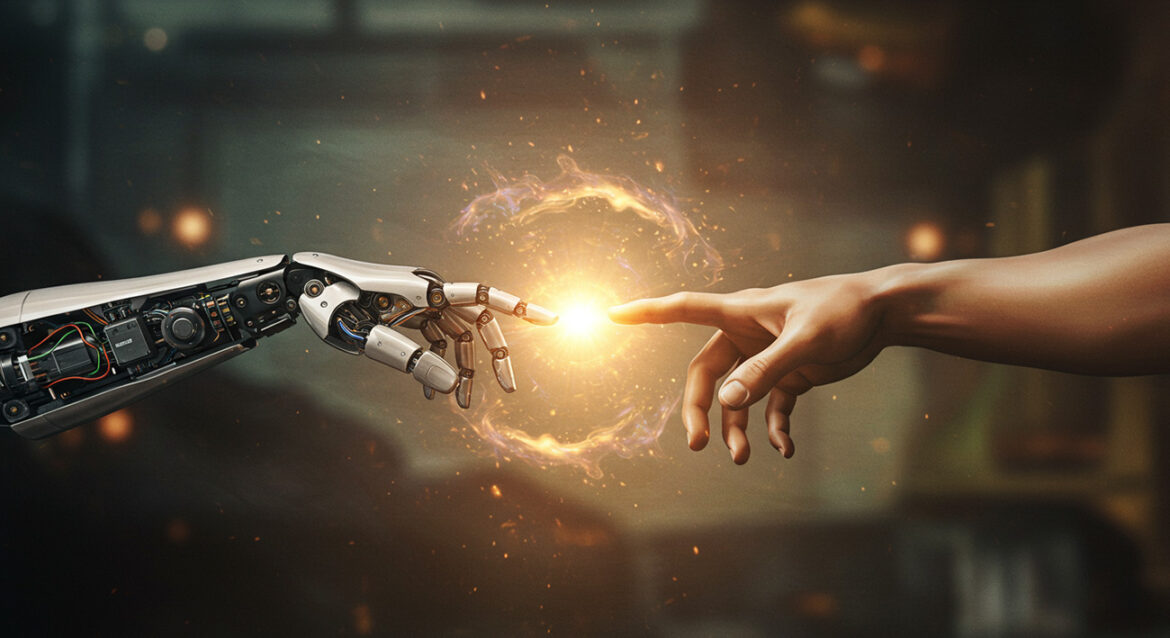It’s hard to ignore the noise around artificial intelligence and the future of work. On one side, we hear dire warnings of mass unemployment as machines outpace human capabilities. On the other, there’s optimism that AI will free us from repetitive drudgery and open the door to more meaningful work. So which is it? Will AI replace jobs or simply redefine them?
The reality, as with most things, sits somewhere in the middle.
The Replacement Question
Let’s start with the uncomfortable part: yes, AI will replace some jobs. It already has. Think of customer support chatbots, content generation tools, and algorithmic trading systems. Roles that involve predictable, rule-based tasks are the most vulnerable. In particular:
- Data entry clerks: Pattern recognition is something AI excels at. Combine that with automation and the need for human data entry starts to shrink.
- Basic customer support: Chatbots and virtual agents can now handle a surprising number of first-line support requests — booking appointments, tracking orders, and troubleshooting common issues.
- Telemarketers: AI-powered voice systems can already follow scripts, respond to questions, and adjust tone. If it’s not already obvious, this job category is on borrowed time.
- Simple transcription roles: Tools like Whisper and Otter.ai are making real-time speech-to-text accurate enough for most use cases, from meetings to legal hearings.
- Routine legal and financial work: Drafting contracts, scanning for anomalies, and flagging compliance issues — these can all now be handled, at least in part, by language models trained on domain-specific data.
There’s a pattern here: tasks that are repetitive, high-volume, and require low levels of nuance are prime candidates for automation.
But That’s Not the Whole Story
Jobs aren’t made of one task — they’re made of many. And even in roles where some components are automated, others are enhanced. That’s where redefinition comes in.
Take marketing. AI tools can now generate ad copy, social media posts, and even basic performance reports. But that doesn’t eliminate the need for marketers — it changes their focus. Less time is spent writing boilerplate content; more time goes into strategy, creative direction, and interpreting analytics. It’s a shift from production to orchestration.
In programming, junior developers may find themselves using tools like GitHub Copilot to scaffold code faster. That doesn’t mean they become obsolete. Instead, their job becomes more about problem-solving, system design, and integrating tools in a meaningful way.
Even in journalism, AI can summarise press releases or earnings calls — but it can’t replace investigative rigour, human judgement, or the ability to craft a compelling narrative that resonates.
The Jobs That AI Will Create
It’s easy to focus on loss, but every wave of automation has also brought new roles into existence. AI is no different. Some examples already emerging:
- Prompt engineers: A term that didn’t exist a few years ago, yet is now an essential part of interacting with large language models effectively.
- AI ethicists and policy specialists: As the technology outpaces legislation, there’s a growing demand for people who can navigate the ethical and societal implications.
- Model trainers and data curators: Large models don’t train themselves. Someone needs to label data, review model behaviour, and ensure performance isn’t degrading in the wild.
- Human-AI interaction designers: Think of these as the next generation of UX professionals — focused on crafting seamless collaboration between people and machines.
These roles require a combination of technical understanding, creative thinking, and human empathy — all things AI isn’t especially good at.
What About the Jobs That Will Be Augmented?
There’s also a third category: roles that won’t be replaced but will change significantly through AI augmentation.
- Teachers may use AI tutors to provide personalised practice exercises for students while they focus on facilitation and emotional support.
- Doctors might rely on AI tools to suggest diagnoses or flag anomalies in scans, but the final call (and the human reassurance that goes with it) still rests with them.
- Lawyers could use language models to draft memos faster, but interpretation of law, negotiation, and courtroom advocacy are nowhere near being automated.
In many of these cases, AI becomes a tool — not a substitute. And the people who thrive will be those who learn how to use these tools skilfully.
So, Should We Be Worried?
It’s natural to feel anxious during a period of transformation. But the question shouldn’t be “Will AI take my job?” — it should be “How is my job likely to change, and how can I prepare for that?”
Adaptability is key. Being curious, upskilling regularly, and understanding the tools available will put most people ahead of the curve. What’s clear is that the future won’t be about man or machine — it’ll be about the two working together in smarter ways.
We’ve been here before. The printing press, the steam engine, the computer — all disrupted labour markets and forced people to adapt. AI is simply the latest chapter. Yes, some jobs will disappear. But many more will evolve. And in that evolution lies opportunity — for those ready to engage with it.
